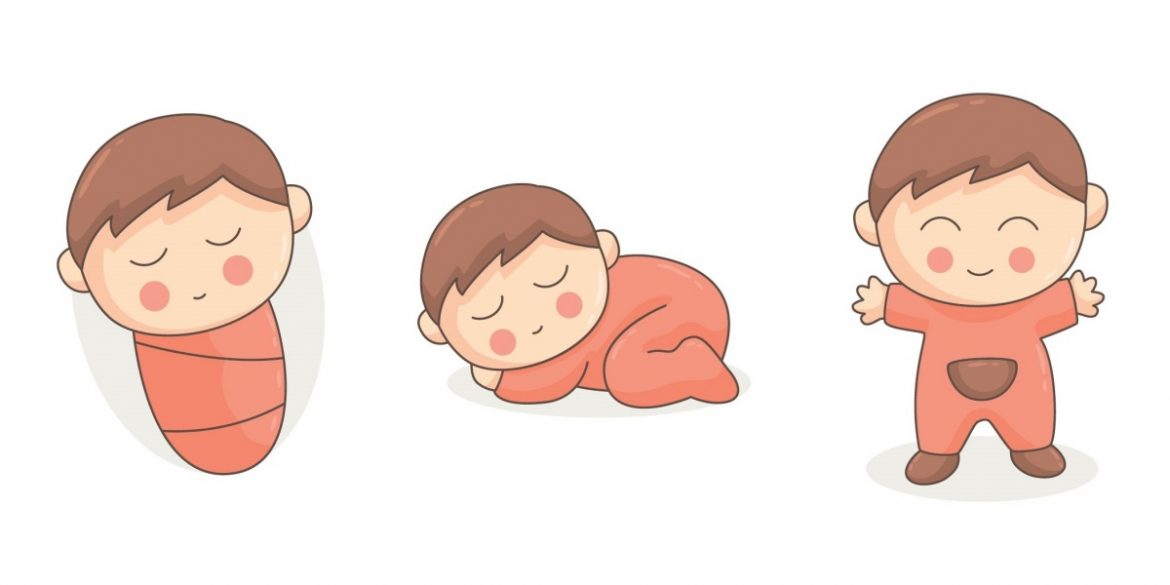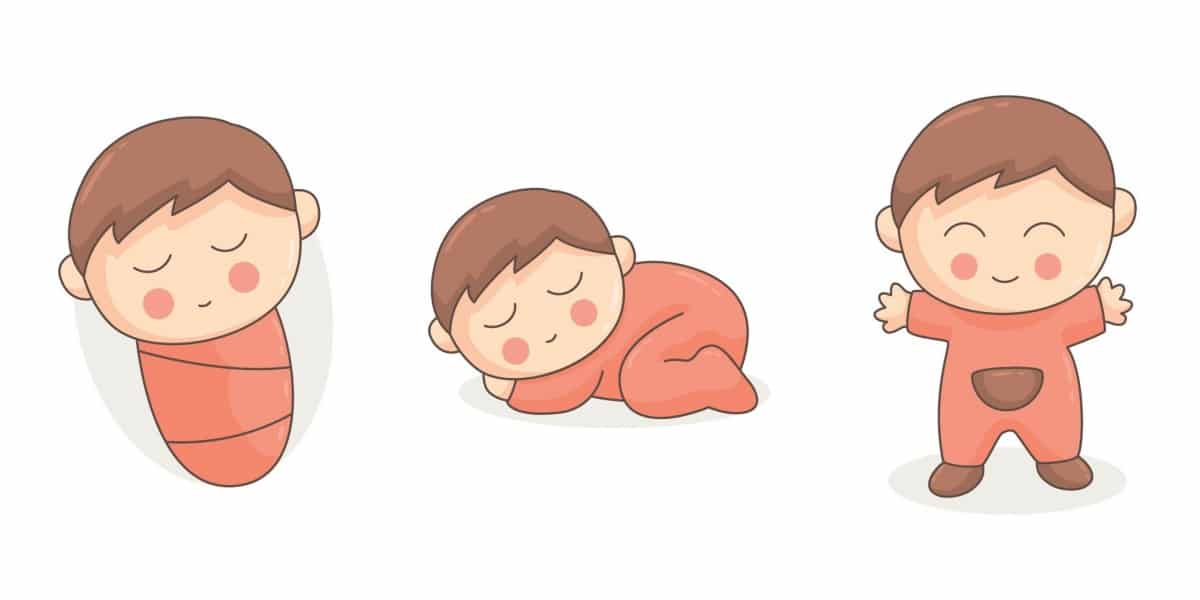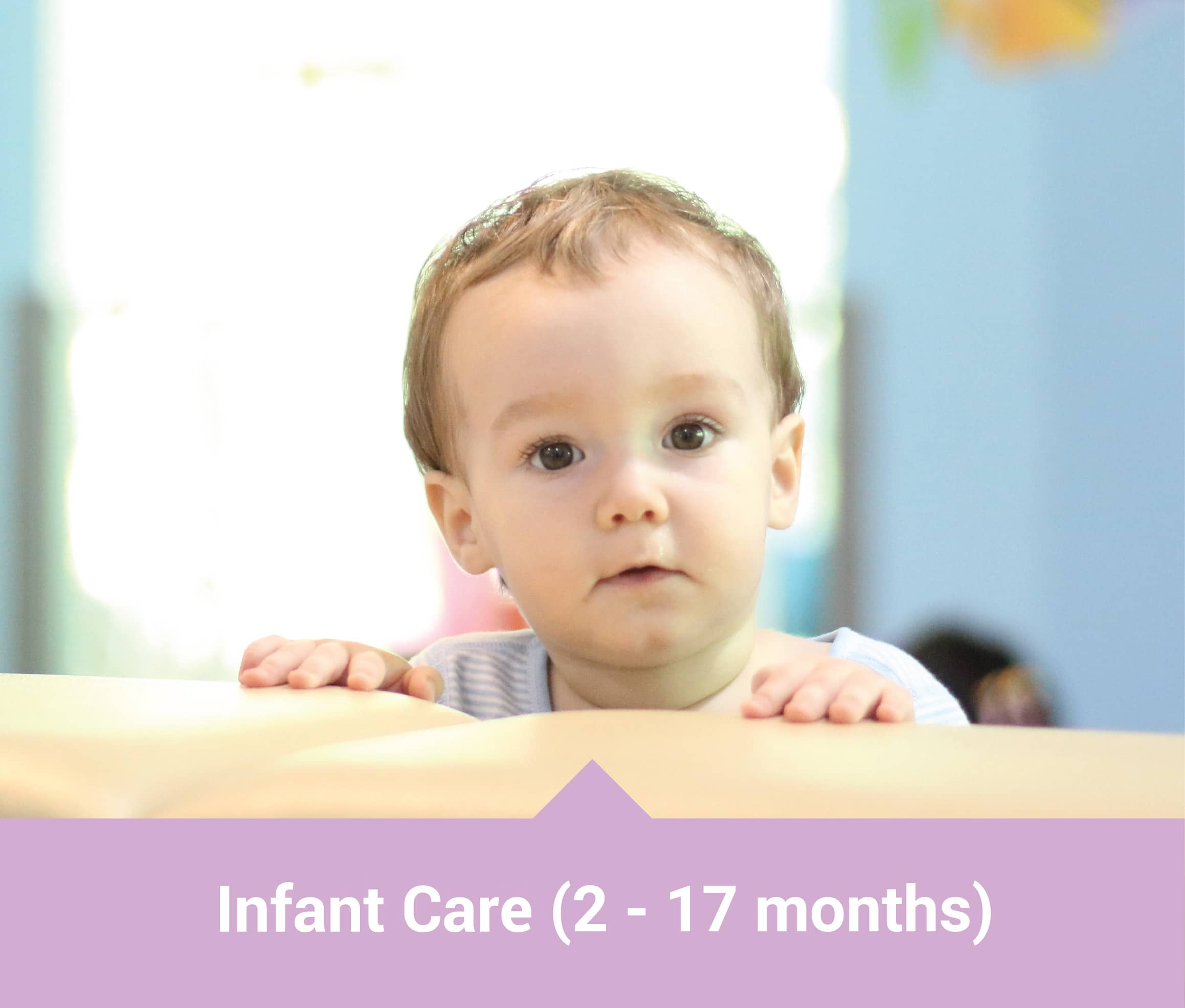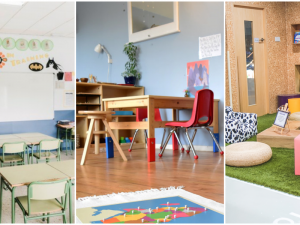
From babies to your older preschool kids, ensure that your little ones are getting sufficient sleep with our handy guide to naps!
Remember those times when you were pregnant and you were probably imagining what you could possibly do in all the me-time you’ll get during your one-month confinement when your baby naps? Be it catching up on your favourite American Serials, watching your tear-jerking Korean Dramas, reading up on books you’ve missed out on, and catching up with friends… A few months down after you’ve popped, you realised the hard truth… That you are now spending all the free time you have coming up with ways to put your child to sleep so that you can also have time to nap yourself!
Well, naps can actually be a refreshing and treasured break in a mummy or daddy’s day, but many parents also find it to be frustrating, especially when it doesn’t go the way they think it should be. Thought that you can find a routine? Experts have said that babies can be very individualised in how much they sleep, when they sleep, and how they fall asleep. There are usually no one-trick pony to putting your little one to sleep but by understanding more about the developmental stages and how infants, toddlers, and preschoolers nap, you may find nap times a little more manageable!
Why Do Babies Need Naps?
Naps are considered a luxury for adults, and only possible during your days off work and on the weekends. Conversely, naps are extremely crucial for our little ones as experts have mentioned that children who nap well tend to grow up to be better eaters, be more engaged in their environment, have higher immunity and less prone to viruses in the environment, and be better sleepers at night.
Naps for Infants, Toddlers, and Preschooler
Bearing in mind that every baby is different, we’re sharing some typical patterns that will emerge in every developmental stage of a child’s life!
0 – 6 weeks
In the first six weeks of a baby’s life, there isn’t a nap time so to speak. Your infant will wake up to feed, sleep, and wake up again for his or her next feed; all around the clock. During these early weeks, you may hardly see a predictable routine or sleep timing.
Babies at this age, sleep on average 16 – 20 hours daily, from between 15 minutes – 3 hours, and at every 30-minutes to 1 hour 25 minutes intervals.
That is why you’ll need all the help you can get during these initial weeks. Be it having the help of your parents or a confinement nanny to share the “workload” so that you can catch a few winks to recharge! Press on, you can do it!
6 weeks to 3 months
At this age, many parents may still see no pattern in their child’s sleep, and paediatricians have said that it is perfectly normal! This is because newborns aren’t able to tell the difference between day and night. Their internal circadian rhythms aren’t yet sync to that of the environment they are in.
Babies sleep a little less during this developmental phase, between 12 – 18 hours a day. You can also try to adjust them to their environment. When it is time for a nap or nighttime sleep, you can put your child to bed in a quiet environment sans lighting or have dim lighting. In contrast, in the day, to help them sort out the confusions of day and night, you can expose your baby to lots of day light and activity, such as talking to them, reading to them, or playing with them.
3 – 6 months
Daytime sleep: 3 to 4 hours (two to three naps)
Night time sleep: 11 to 12 hours
Total: 14 to 16 hours
At around four months old, babies will start to settle into some kind of routine of naps – perhaps one nap in the morning, one to two in the afternoon, and their long nighttime sleep (which can be interrupted still as they wake up for feeds). During this period, they are going through their 4-month sleep regression (when they start to resist naps) and it can be an exhausting phase for parents. This is when you’ll start to see a contrast in their sleeping patterns where they no longer sleep around the clock and notice some form of a pattern as you pick up sleepiness cues. With fewer but longer naps, parents may also start to find more time for themselves!
However, as babies have fewer naps, it is important to ensure that they are well-rested too. Loud noises can startle them and cause them to become overtired. Learning how to soothe an overtired baby and making sure that they have restful sleep is important.
You can do so by being aware of sleepiness cues. This could be rubbing of eyes, fluttering of eyelids, yawning and sometimes even crying. You would want them to nap in the same space as far as possible but because babies may start to resist sleep at this age, you may need to get your ltitle ones to nap by rocking them, feeding them, or letting them nap in the swing, stroller, or even in the car. Like the previous phase, setting the mood for sleep, think of a dark and quiet room, or even pre-nap or sleep rituals like a warm bath, a little massage, playing soft music or white noise will be useful to encourage babies to fall asleep.
Infant care starts as early as 2 months and besides taking care of your child’s developmental needs, infant educarers are also knowledgeable in helping babies nurture sleep patterns. This way, you’ll only have to be concerned about their nightly sleep!
6 – 12 months
Daytime sleep: 2 to 3 hours (two naps)
Night time sleep: 11 to 12 hours
Total: 13 to 15 hours
Nap schedules are more predictable at this age. Most infants would have a twice-a-day nap schedule for a total of two to three hours. These baby nap schedules are meant to provide a guide as there are no hard and fast rules about how much is the right amount of sleep.
Parents may wish to continuously carry out the pre-naptime and bedtime sleep routines. It will also be good to put them down in their cot or their crib close to their naptimes or when they start feeling drowsy so that they can learn to sleep on their own, without nursing, feeding, or even rocking. Giving them a small soft toy or blanket to comfort them when they go to bed may also help them to sleep independently.
It does take quite a while for them to learn and some babies still rely on nursing or rocking but remember that every child is different! Consistency is also key here as young children learn through repeated actions!
12 months – 18 months
Daytime sleep: 1 to 2 hours (one nap)
Night time sleep: 11 to 12 hours
Total: 12 to 14 hours
There are lots of variations here, but around 18 months, many toddlers will start to have fewer nap times. One nap a day in the afternoon. Nap times shouldn’t be too long at this age as it may then affect night time sleep.
If your child is currently in an infant care, they will usually have a scheduled afternoon nap where the curtains are drawn, the lights dim, the teachers tip-toe around the infant bay area to ensure every child gets restful a nap!
18 months to 4 years
Daytime sleep: 1 to 2 hours (one nap)
Night time sleep: 11 to 12 hours
Total: 12 to 14 hours
By this age, your child is of preschool-going age and will start to learn the nap schedule of his or her preschool. Most preschools do have a scheduled nap time in the afternoon and by going for naps together with their friends, children will be more compelled to self-soothe and sleep independently in their childcare centres.
In comparison, children who don’t go to preschool or a childcare may refuse to nap in the afternoon, especially when they have older siblings. They will try to resist naps to play with their older sister or brother.
5 to 6 years old
Daytime sleep: 1 hour (one nap)
Night time sleep: 10 to 11 hours
Total: 11 to 12 hours
Many children 5 years old and above may still require nap time but they sleep for shorter periods at this age. Especially for the Kindergarten 2 children who will be transiting to Primary 1 a year later, they will need to learn to stay awake for longer hours in school.
I remember when I was a lower Primary school student, nap times after school in the morning is still a must! Whether or not your child naps at this age, is certainly up to the individual child, but ensuring that bedtime at night is at a regular, consistent time, ensuring that they get the full night rest of a total of 11 – 12 hours daily (including naps)!
Looking for Infant Care or Child Care in Singapore?
Established in 2006, Mulberry Learning is an award-winning Reggio-inspired preschool with 11 locations around Singapore. Its Full-Day and Half-Day Infant Care Programmes help your babies and toddlers aged 2 months to 17 months to learn and grow in a fun and engaging environment. Mulberry Learning is the world’s first and only preschool network certified by the USA for the Habits of MindTM framework, and its curriculum has been voted as “Singapore’s Best Holistic Learning Programme” for 3 years running by leading parenting publications.
Exclusive Promotion
Book a virtual tour with Mulberry Learning to find out how its award-winning curriculum can help prepare your child for his or her Primary years and beyond! Explore our beautifully crafted Reggio-inspired learning spaces from the comfort of your own home with our Virtual School Tours!










